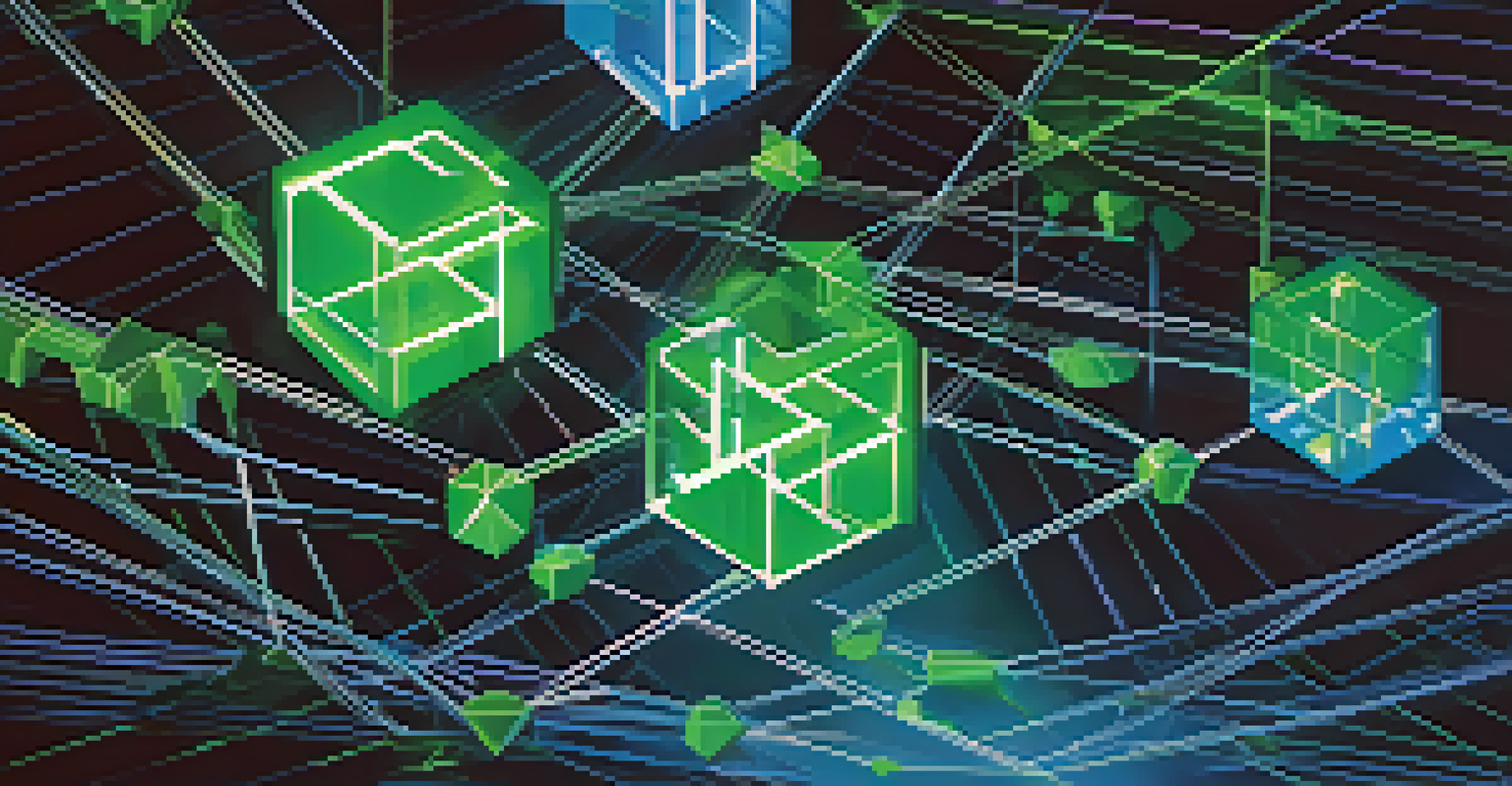Dispute Resolution Mechanisms in Cryptocurrency Projects

The Importance of Dispute Resolution in Crypto Projects
Dispute resolution is a crucial aspect of any cryptocurrency project. As these projects often involve diverse stakeholders—from developers to investors—conflicts can arise over various issues, such as project direction or fund allocation. Without a clear mechanism for resolving disputes, projects can stall, leading to financial losses and damaged reputations.
In the middle of difficulty lies opportunity.
In the fast-paced world of cryptocurrency, transparency and trust are paramount. Effective dispute resolution mechanisms help build a solid foundation for relationships between all parties involved. By addressing conflicts promptly and fairly, projects can maintain stakeholder confidence and encourage long-term engagement.
Moreover, these mechanisms can prevent small disagreements from escalating into larger issues that could threaten the project's viability. By fostering an environment where disputes can be resolved amicably, projects can focus on innovation and growth rather than conflict.
Common Types of Disputes in Cryptocurrency
Disputes in cryptocurrency projects can manifest in various forms. Common issues include disagreements over contract terms, intellectual property disputes, or even disputes related to token distribution. Understanding the types of conflicts that can arise is the first step in crafting effective resolution strategies.

For instance, if a project has multiple developers, disagreements over coding practices or timelines can lead to friction and inefficiencies. Similarly, investors may clash with project leaders over financial transparency or the project's strategic direction. Identifying these common sources of disputes can help teams proactively address potential conflicts.
Dispute Resolution Builds Trust
Effective mechanisms for dispute resolution foster transparency and maintain stakeholder confidence in cryptocurrency projects.
Additionally, disputes can also originate from external factors, such as regulatory changes that impact project operations. Being aware of these issues allows cryptocurrency projects to prepare and implement preventive measures, ensuring smoother conflict resolution.
Traditional Dispute Resolution Methods Explained
Traditional dispute resolution methods include negotiation, mediation, and arbitration. Negotiation involves parties discussing the conflict directly to reach a mutually agreeable solution. This method is often the most straightforward, fostering open communication and collaboration.
The greatest danger in times of turbulence is not the turbulence; it is to act with yesterday's logic.
If negotiation fails, mediation can step in as a next step. Here, a neutral third party helps facilitate discussions between the disputing parties. The mediator's role is not to impose a solution but to guide both sides toward a resolution that is satisfactory to all involved.
Arbitration is another viable option, where a neutral arbitrator listens to both sides and makes a binding decision. This method is more formal and can sometimes resemble a court proceeding. Understanding these traditional methods allows cryptocurrency projects to choose the best approach for their specific needs.
Emerging Dispute Resolution Mechanisms in Crypto
With the rapid evolution of cryptocurrency, new dispute resolution mechanisms are emerging. One such approach is the use of decentralized autonomous organizations (DAOs) that enable community governance and decision-making. In a DAO, members can vote on how to resolve disputes, ensuring that all voices are heard.
Another innovative method is the integration of smart contracts, which can automatically execute agreements based on predefined terms. If a dispute arises, the smart contract can be programmed to follow specific protocols for resolution, reducing the chances of human error or bias.
Community Involvement is Key
Engaging community members in the dispute resolution process leads to innovative solutions and strengthens project relationships.
These emerging mechanisms not only streamline the resolution process but also enhance transparency and trust among participants. As the cryptocurrency landscape continues to evolve, these new methods may become standard practices in dispute resolution.
The Role of Community in Dispute Resolution
In many cryptocurrency projects, the community plays a vital role in dispute resolution. Community members can contribute to discussions and propose solutions, fostering a collective sense of responsibility. This collaborative approach not only empowers individuals but also strengthens community bonds.
Engaging the community in resolving disputes can also lead to more innovative solutions. When diverse perspectives come together, the chances of finding a unique and effective resolution increase. This collective intelligence can be an invaluable asset in navigating conflicts.
Moreover, a strong community can help prevent disputes from arising in the first place. By promoting open communication and encouraging feedback, projects can address potential concerns before they escalate into conflicts, creating a healthier project environment.
Legal Considerations in Cryptocurrency Disputes
Legal considerations are crucial when navigating disputes in cryptocurrency projects. Different jurisdictions may have varying regulations that impact how disputes are resolved, making it essential for project leaders to understand the legal landscape. This knowledge can help them choose appropriate mechanisms that comply with applicable laws.
Furthermore, having a legal framework in place can provide clarity for all parties involved. This includes drafting clear contracts that outline dispute resolution processes, ensuring everyone is aware of their rights and responsibilities. By doing so, projects can minimize misunderstandings and reduce the likelihood of disputes.
Legal Framework is Essential
Understanding legal considerations and having a clear legal framework helps cryptocurrency projects navigate disputes effectively.
Additionally, legal advisors can provide valuable guidance in complex situations, helping projects navigate potential pitfalls. This proactive approach to legal considerations lays a solid foundation for effective dispute resolution in cryptocurrency projects.
Best Practices for Effective Dispute Resolution
Implementing best practices can significantly enhance dispute resolution processes in cryptocurrency projects. One effective strategy is to establish clear communication channels where stakeholders can voice their concerns and seek clarification. This openness can help resolve minor issues before they escalate into major disputes.
Furthermore, documenting all agreements and decisions is essential. Keeping a comprehensive record not only provides clarity but also serves as a reference point if conflicts arise in the future. This practice ensures that all parties are on the same page and reduces misunderstandings.

Lastly, fostering a culture of collaboration and respect is vital. Encouraging stakeholders to approach disputes with a problem-solving mindset rather than an adversarial one can lead to more amicable resolutions. By prioritizing relationships, projects can create an environment conducive to effective dispute resolution.